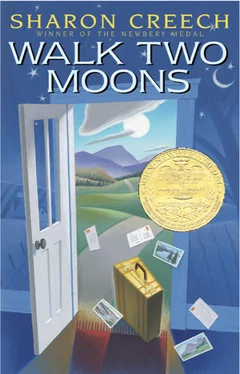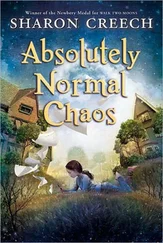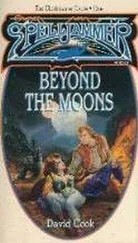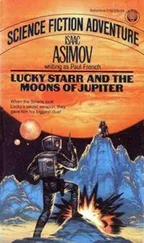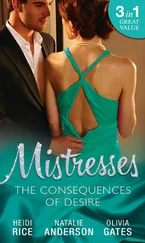“I hope everything turned out all right,” Gram said. “I’m a little worried about Peeby.”
On the day after Phoebe showed her father the suspicious spots and the unidentifiable hair strands, another message appeared: You can’t keep the birds of sadness from flying over your head, but you can keep them from nesting in your hair. Phoebe brought the message to school to show me. “The lunatic again,” she said.
“If he has already kidnapped your mother, why would he still be leaving messages?”
“They’re clues,” she said.
At school, people kept asking Phoebe about her mother’s business trip to London. She tried to ignore them, but it wasn’t always possible. She had to answer some of the time.
When Megan asked Phoebe what sights her mother had seen, Phoebe said, “Buckingham Palace—”
“Of course,” Megan nodded knowingly.
“And Big Ben, and—” Phoebe was struggling. “Shakespeare’s birthplace.”
“But that’s in Stratford-on-Avon,” Megan said. “I thought your mother was in London. Stratford is miles away. Did she go on a day trip or something?”
“Yes, that’s what she did. She went on a day trip.”
Phoebe couldn’t help it. She looked as if a whole family of the birds of sadness were nesting in her hair.
In English class, Ben had to give his mythology report. He was nervous. He explained that Prometheus stole fire from the sun and gave it to man. Zeus, the chief god, was angry at man and at Prometheus for taking some of his precious sun. As punishment, Zeus sent Pandora (a woman) to man. Then Zeus chained Prometheus to a rock and sent vultures down to eat Prometheus’s liver. In Ben’s nervousness, he mispronounced Prometheus, so what he actually said was that Zeus sent vultures down to eat porpoise’s liver.
Mary Lou invited both me and Phoebe to dinner that night. When I phoned my father, he did not seem to mind, and I knew he wouldn’t. All he said was, “That will be nice for you, Sal. Maybe I’ll go eat over at Margaret’s.”
Dinner at the Finneys’ was an experience. When we arrived, Mary Lou’s brothers were running around like crazed animals, jumping over the furniture and tossing footballs. Mary Lou’s older sister, Maggie, was talking on the telephone and plucking her eyebrows at the same time. Mr. Finney was cooking something in the kitchen, with the help of four-year-old Tommy. Phoebe whispered, “I am not too optimistic about the possibilities of this meal.”
When Mrs. Finney straggled in the door at six o’clock, Tommy and Dougie and Dennis tugged at various parts of her, all of them talking at once. “Look at this,” and “Mom, Mom, Mom,” and “Me first!” She made her way into the kitchen, trailing all three of them like a fishhook that has snagged a tangle of old tires and boots and other miscellaneous rubbish. She gave Mr. Finney a sloppy kiss on the lips, and he slipped a piece of cucumber into her mouth.
Mary Lou and I set the table, although I think it was largely a wasted effort. Everyone descended on the table in a chaotic flurry, knocking over glasses and sending forks onto the floor and picking up plates (which did not match, Phoebe pointed out to me) and saying, “That’s my plate. I want the daisy plate,” and “Give me the blue one! It’s my turn for the blue plate.”
Phoebe and I sat between Mary Lou and Ben. In the center of the table was a whomping platter of fried chicken. Phoebe said, “Chicken? Fried? I can’t eat fried foods. I have a sensitive stomach.” She glanced at the three pieces of chicken on Ben’s plate. “You really shouldn’t eat that, Ben. Fried foods aren’t good for you. First of all, there’s the cholesterol—”
Phoebe removed two pieces of chicken from Ben’s plate and put them back on the serving platter. Mr. Finney coughed. Mrs. Finney said, “You’re not going to eat the chicken then, Phoebe?”
Phoebe smiled. “Oh no, Mrs. Finney. I couldn’t possibly. Actually, Mr. Finney shouldn’t be eating it either. I don’t know if you’re aware of this, but men should really be careful about their cholesterol.”
Mr. Finney stared down at his chicken. Mrs. Finney was rolling her lips around peculiarly. By this time, the beans had been passed to Phoebe. “Did you put butter on these beans, Mrs. Finney?”
“Yes, I did. Is there something wrong with butter?”
“ Cholesterol ,” Phoebe said. “Cho-les-ter-ol. In the butter.”
“Ah,” Mrs. Finney said. “Cholesterol.” She looked at her husband. “Be careful, dear. There’s cholesterol on the beans.”
I stared at Phoebe. I am sure I was not the only one in the room who wanted to strangle her.
Ben pushed his beans to one side of his plate. Maggie picked up a bean and examined it. When the potatoes came around, Phoebe explained that she was on a diet and could not eat starch. The rest of us looked glumly down at our plates. There was nothing at all on Phoebe’s plate. Mrs. Finney said, “So what do you eat, Phoebe?”
“My mother makes special vegetarian meals. Low-calorie and no cholesterol. We eat a lot of salads and vegetables. My mother’s an excellent cook.”
She never mentioned the cholesterol in all those pies and brownies her mother made. I wanted to jump up and say, “Phoebe’s mother has disappeared and that is why Phoebe is acting like a complete donkey,” but I didn’t.
Phoebe repeated, “A truly excellent cook.”
“Marvelous,” Mrs. Finney said. “And what do you propose to eat tonight?”
“I don’t suppose you have any unadulterated vegetables?”
“Unadulterated?” Mrs. Finney said.
“It means unspoiled, without any butter or stuff added—”
“I know what it means, Phoebe,” Mrs. Finney said.
“I can eat unadulterated vegetables. Or if you have any red bean salad handy—or stuffed cabbage leaves? Broccoli and lentil casserole? Macaroni and cheese? Vegetarian spaghetti?”
One by one, everyone at the table turned to stare at Phoebe. Mrs. Finney got up from the table and went into the kitchen. We heard her opening and closing cupboards. She returned to the doorway. “Muesli?” she asked Phoebe. “Can you eat muesli?”
Phoebe said, “Oh yes, I eat muesli. For breakfast.”
Mrs. Finney disappeared again and returned with a bowl of dried-up muesli and a bottle of milk.
“For dinner?” Phoebe asked. She gazed down at the bowl. “I usually eat it with yogurt on it—not milk,” she said.
Mrs. Finney turned to Mr. Finney. “Dear, did you buy yogurt this week?”
“Blast it! How could I forget the yogurt?”
Phoebe ate her dried-up muesli without milk. All through dinner, I kept thinking of Bybanks, and what it was like when we went to my grandparents’ house for dinner. There were always tons of people—relatives and neighbors—and lots of confusion. It was a friendly sort of confusion, and it was like that at the Finneys’. Tommy spilled two glasses of milk, Dennis punched Dougie, and Dougie punched him back. Maggie socked Mary Lou, and Mary Lou flipped a bean at her. Maybe this is what my mother had wanted, I thought. A house full of children and confusion.
On the way home, I said, “Didn’t everyone seem unusually quiet after dinner?”
Phoebe said, “It was probably because of all that cholesterol sitting heavily on their stomachs.”
I asked Phoebe if she wanted to spend the weekend at my house. I’m not sure why I did this. It was an impulse. I had not yet invited anyone to my house. She said, “I guess. That is, if my mother is still—” She coughed. “Let’s go ask my dad.”
In the kitchen, her father was washing the dishes. He was wearing a frilly apron over his white shirt and tie. “You’re supposed to rinse the soap off,” Phoebe said. “And is that cold water you’re using? You’re supposed to use really, really hot water. To kill the germs.”
Читать дальше
